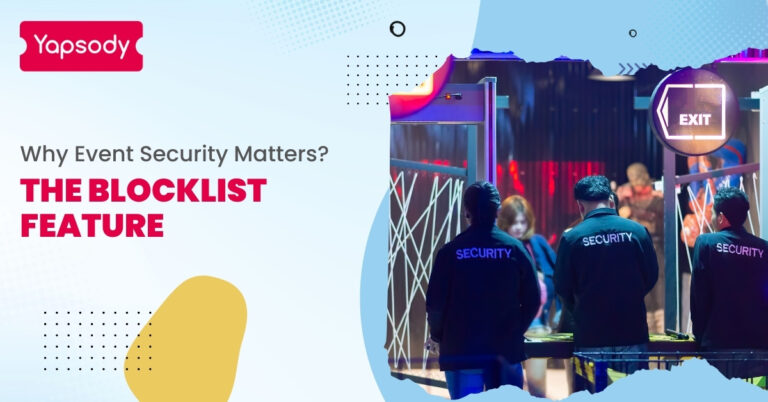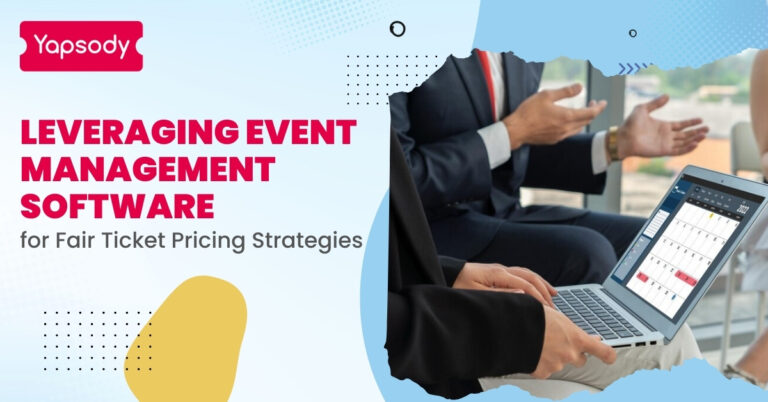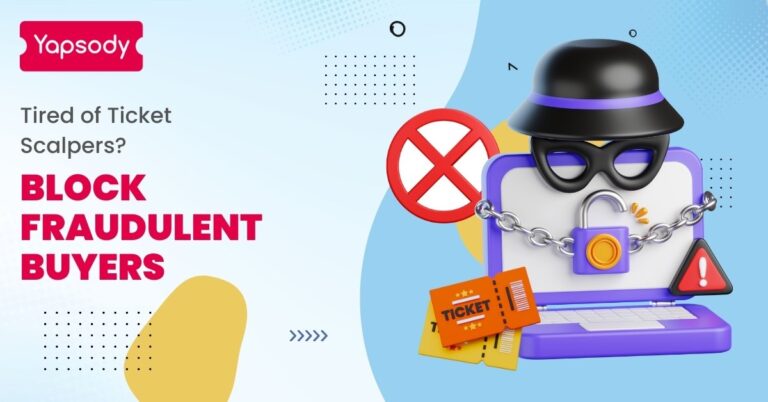Choosing the right event ticketing platform is a critical decision for event organizers. The digital age has ushered in a myriad of options, each with its unique features and capabilities. In this blog, we will explore the key factors to consider when selecting an event ticketing platform to ensure seamless ticket sales, a positive attendee experience, and the overall success of your event.
Explore the ways to choose the right event Ticketing Platform
Understand Your Event Needs:
- Event Type: Consider the nature of your event. Is it a concert, conference, festival, or a combination of activities? Different events may require specific features, such as reserved seating, multi-day passes, or VIP options. Choose a platform that caters to your event’s unique requirements.
- Ticket Volume: Evaluate the expected volume of ticket sales. Some platforms are better suited for smaller events with moderate ticket sales, while others are equipped to handle large-scale events with high demand. Ensure the platform can scale according to your needs.
Evaluate User-Friendliness:
- Intuitive Interface: Opt for a ticketing platform with an intuitive and user-friendly interface. This is crucial not only for your team managing the platform but also for potential attendees navigating the ticket purchase process. A seamless, easy-to-use interface contributes to a positive user experience.
- Mobile Accessibility: In the age of smartphones, the ticketing platform should be mobile-friendly. Ensure that potential attendees can easily browse and purchase tickets using their mobile devices, as this can significantly impact your event’s reach and ticket sales.
Payment Processing and Fees:
- Payment Options: Check the payment options supported by the platform. A versatile platform should accommodate various payment methods, including credit/debit cards, digital wallets, and potentially other regional options. The more payment options available, the broader your potential audience.
- Transparent Fees: Understand the fee structure of the ticketing platform. Transparent pricing, with clear information on service fees, processing fees, and any other charges, is crucial for both organizers and attendees. Hidden fees can lead to dissatisfaction and impact overall trust.
Integration Capabilities:
- Third-Party Integrations: Consider the platform’s compatibility with other tools and services you might use, such as marketing tools, analytics platforms, or customer relationship management (CRM) systems. Integration capabilities can streamline your workflow and enhance overall event management.
- Payment Gateway Integration: If you have a preferred payment gateway, ensure that the ticketing platform supports it. Seamless integration with popular payment gateways like Stripe, PayPal, or Square can simplify financial transactions and enhance the user experience.
Customer Support and Security:
- Customer Support Services: Evaluate the customer support services provided by the ticketing platform. Quick and responsive support is crucial in case of any issues or questions. Look for platforms that offer multiple support channels, including email, live chat, or phone support.
- Security Measures: Security is paramount when handling financial transactions and personal information. Choose a ticketing platform that prioritizes security, with features such as encryption, fraud prevention, and compliance with industry standards to protect both organizers and attendees.
Conclusion
Selecting the right ticketing platform is a pivotal step in the success of your event. By carefully considering your event’s specific needs, evaluating user-friendliness, payment processing, integration capabilities, and ensuring excellent customer support and security, you can make an informed decision. Take the time to explore the available options, ask for demos, special offers and read user reviews to find the platform that aligns seamlessly with your event goals and enhances the overall experience for both organizers and attendees. To know more, register with Yapsody for the best event ticketing experience.
Want to sell tickets event tickets online?
Frequently Asked Questions
1. What factors should I consider when choosing an event ticketing platform for my event?
When selecting an event ticketing platform, consider factors such as the type of event, expected ticket volume, user-friendliness of the interface, mobile accessibility, payment options, transparency in fee structures, integration capabilities, and the platform’s security measures. Assessing these factors will help you find a platform that aligns with the specific needs of your event.
2. How do I determine if a ticketing platform is user-friendly?
A user-friendly ticketing platform is characterized by an intuitive interface that allows both event organizers and attendees to navigate easily. Look for platforms with straightforward processes for creating events, managing ticket sales, and purchasing tickets. Additionally, check if the platform is mobile-friendly, ensuring a seamless experience for users accessing the platform on smartphones and tablets.
3. What payment options should I look for in a ticketing platform?
Choose a ticketing platform that supports a variety of payment options, including major credit/debit cards, digital wallets, and potentially other regional payment methods. A diverse range of payment options caters to a broader audience, making it more convenient for attendees to purchase tickets using their preferred method.
4. Can I integrate the ticketing platform with other tools and services I use for event management?
Yes, it’s important to select a ticketing platform with strong integration capabilities. Check if the platform supports third-party integrations with tools such as marketing platforms, analytics software, and customer relationship management (CRM) systems. Integration capabilities streamline your workflow and enhance the overall efficiency of event management.
5. How do I ensure the security of transactions and personal information on the chosen ticketing platform?
Prioritize security when choosing a ticketing platform. Look for features such as encryption, fraud prevention measures, and compliance with industry standards. Additionally, read the platform’s security documentation and terms of service to ensure that it aligns with best practices for handling financial transactions and safeguarding personal information of both organizers and attendees.










